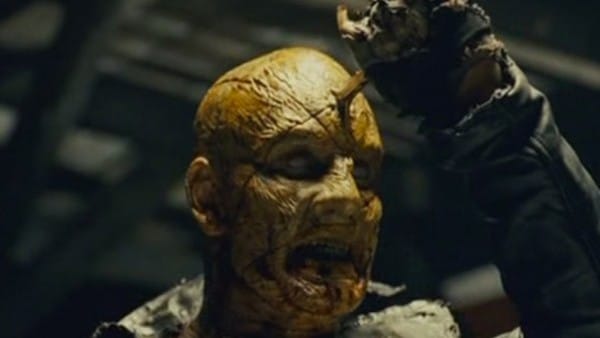Every month, we at The Spool select a filmmaker to explore in greater depth — their themes, their deeper concerns, how their works chart the history of cinema and the filmmaker’s own biography. For July, we honor the chameleonic genre-bending of the recently-passed Joel Schumacher, who embraced camp thrills and pulp trash in equal measure. Read the rest of our coverage here.
Say what you will about Joel Schumacher, and his style (or lack thereof), but the man was never afraid to try something new. Lacking a signature style may have been to his benefit here, because it allowed him to direct whatever seemed interesting to him, without worrying about if it fit with his image. He tried family comedy, romantic comedy, romantic drama, horror, legal thrillers, comic book movies, whatever the hell The Number 23 was supposed to be, even a musical. Much of it worked, much of it didn’t, though when it didn’t work it was often as much an issue in Schumacher’s choice of material than his directing ability. 2009’s Blood Creek falls somewhere in the middle, in that it’s an interesting premise that no one, least of all Schumacher himself, had any idea what to do with.
Blood Creek feels like it should have been based on an obscure comic book series, but the ideas and folklore it offers are barely developed. It seems to exist mostly so Schumacher could take a stab (no pun intended) at occult horror, after trying supernatural horror with Flatliners and horror comedy with The Lost Boys. A flop at the box office, it’s remembered mostly for its pre-A-list appearances by Henry Cavill and Michael Fassbender, who, regrettably, spends much of the movie with his excellent bone structure heavily obscured in monster makeup.
Cavill plays Evan Marshall, a West Virginia paramedic struggling to keep his family afloat after the disappearance of his brother, Victor, two years earlier. Victor (Dominic Purcell) reemerges in the middle of the night, battered, traumatized and claiming that a German family has been keeping him captive on their isolated farm. After packing more weapons between the two of them than the Michigan Militia, Victor and Evan travel back to the farm so that Victor can exact revenge.
Evan meekly goes along with it, even when Victor starts slapping around the elderly woman and teenage girl who live in the farmhouse. Together they all tell a bizarre story that ties into the prologue, about how seventy years earlier the family was duped into taking a boarder named Richard Wirth (Michael Fassbender), who turned out to be a Nazi searching for Viking runestone on their property. The runestone gives Wirth the power to bring back the dead, but the family traps him on their property so that he can’t leave to inflict his dark magic upon the world.
Blood Creek feels like it should have been based on an obscure comic book series, but the ideas and folklore it offers are barely developed.
The downside of this plan is that, for reasons which are unclear, the family remains in a sort of suspended animation, unable to die or even age. They’re cursed to be Wirth’s eternal keepers, always on watch and providing him with human sacrifices, including, ostensibly, Victor (and Shea Whigham, in a small role). Victor’s escape was no accident: it was part of Wirth’s evil plan, knowing that Victor would return for payback, and inadvertently help break the spell, setting Wirth free.
Let’s start with the positives: Cavill, who post-Man of Steel comes off as a bit of a stiff in most of his roles, is actually pretty good here, as opposed to Purcell, who mostly just shouts and pushes people around. Fassbender, playing a necromancer/vampire/something or other, is genuinely creepy, in a role where he doesn’t have much more to do than walk menacingly around the outside of a farmhouse and whisper Norse curses. There’s some decent gore, and a few ingeniously gruesome moments, like a zombie horse wreaking havoc inside the house.

On the negative side, there’s everything else. Blood Creek is a very silly movie, and to say that it falls apart if you think about it too long suggests that it was ever together in the first place. While there’s certainly nothing wrong with leaving much in a horror movie to the audience’s imagination, the plot is vague to the point of incoherence. We don’t know what Wirth’s ultimate goal is, or why his head looks like a burnt cheese pizza with runes and swastikas carved into it. Wirth has the power to bring back the dead and force them to do his bidding, but somehow the mere act of locking him in a cellar is enough to keep him under control. The script, written by David Kajganich (who went on to better things with the remake of Suspiria), presents everything that happens as if the audience already knows the mythology and can fill in the missing information themselves, such as why Wirth drives a spike into his own head (or why something that looks like caramel pours out of the wound).
When the movie ends with the reveal that there are other farmhouses in the area that are each holding their own Nazi necromancer/vampire/something or other captive, the reaction isn’t so much shock as a puzzled shrug. Considering they can be thwarted by a red X painted on a piece of paper, they really don’t seem all that powerful, being able to raise birds and Shea Whigham from the dead aside.
Perhaps most puzzling about Blood Creek is what drew Joel Schumacher to it. Content to let the special effects do most of the heavy lifting, he’s especially phoning it in here. While Schumacher may have lacked a style unique to him, his movies for the most part are stylish. For a movie that involves Nazi necromancer/vampires, however, Blood Creek is disappointingly flat and dull. It’s not that it’s badly directed, but rather doesn’t seem to have been directed at all.